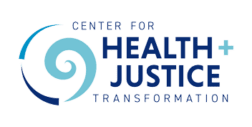The COVID 19 pandemic has upended the lives of many Americans who were already struggling to make ends meet.
With unemployment and homelessness at record rates, everyone is talking about eviction moratoriums, prohibiting utility shut-offs, and basic economic protections for low-income folks.
But I’ve noticed with frustration that largely absent from this discussion is court-related debt.
Virtually everyone who goes through our criminal court system ends up owing money to the court for fines and fees related to their case. In Rhode Island, like in the rest of the country, little has been done to provide any kind of court debt relief during this time, or meaningfully communicate with justice-involved people about how payment processes may have changed.
This fall, in collaboration with several partner organizations, we’ve been diving in to understanding the current landscape of court debt in Rhode Island. A public records request submitted to the RI Dept of Corrections showed that from Jan 2019 through December 2020, at least 475 people were incarcerated due to their outstanding debt. This is a significant improvement from recent years but indicates that we are still not adequately addressing the vicious cycle: inability to pay + missed court dates = warrants issued + days at the ACI + additional fees + additional collateral consequences of incarceration and debt = inability to pay, and so on. In this terribly inefficient, expensive, and oppressive game, nobody wins.
We also worked with our partners to survey 51 Rhode Islanders with court debt and found that since the start of the pandemic, only 9 individuals reported having heard from the court about how their payment obligations would be impacted. 39 people reported being unsure about whether their monthly payment obligations had changed, and 31 people indicated that they had not been able to pay anything toward their debt since March. The courts were technically not issuing warrants for failing to appear at cost review dates while the courts were closed, but 24 people reported being concerned about warrants. These reports speak to how non-transparent and non-user-friendly the payment process is, and how much stress it causes justice-involved Rhode Islanders. In a couple of months, I’m looking forward to sharing with you an issue brief about how this kind of debt and stress impacts people’s health.
In 2021, I’m excited to keep exploring strategies to reduce the justice debt burden shouldered by Rhode Islanders and have more public discussions about the many ways we criminalize poverty. Have any ideas for us about what to prioritize? Please don’t hesitate to reach out! sss
Sarah Martino
Deputy Director

Well said and certainly a pertinent issue. I makes no sense to re-incarcerate people due to court debt. Keeping people gainfully employed would make so much more sense. Putting people that are in debt due to court fines only causes more debt and damages self esteem while causing undue stress on families. During incarceration, no child support is being paid and leads to a general feeling of unproductivity and shame. There has to be a better answer and I hope we can move in that direction in the coming year.
PermalinkMaureen Apperson